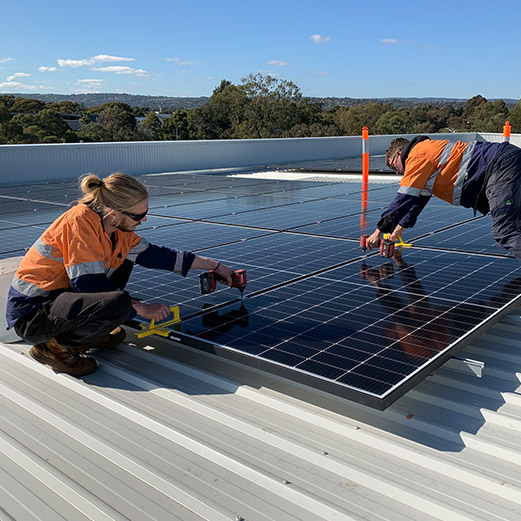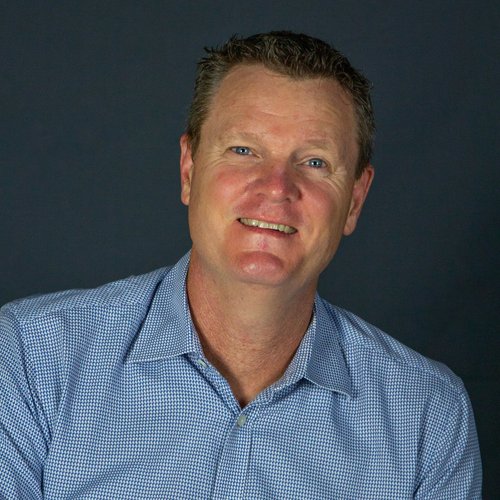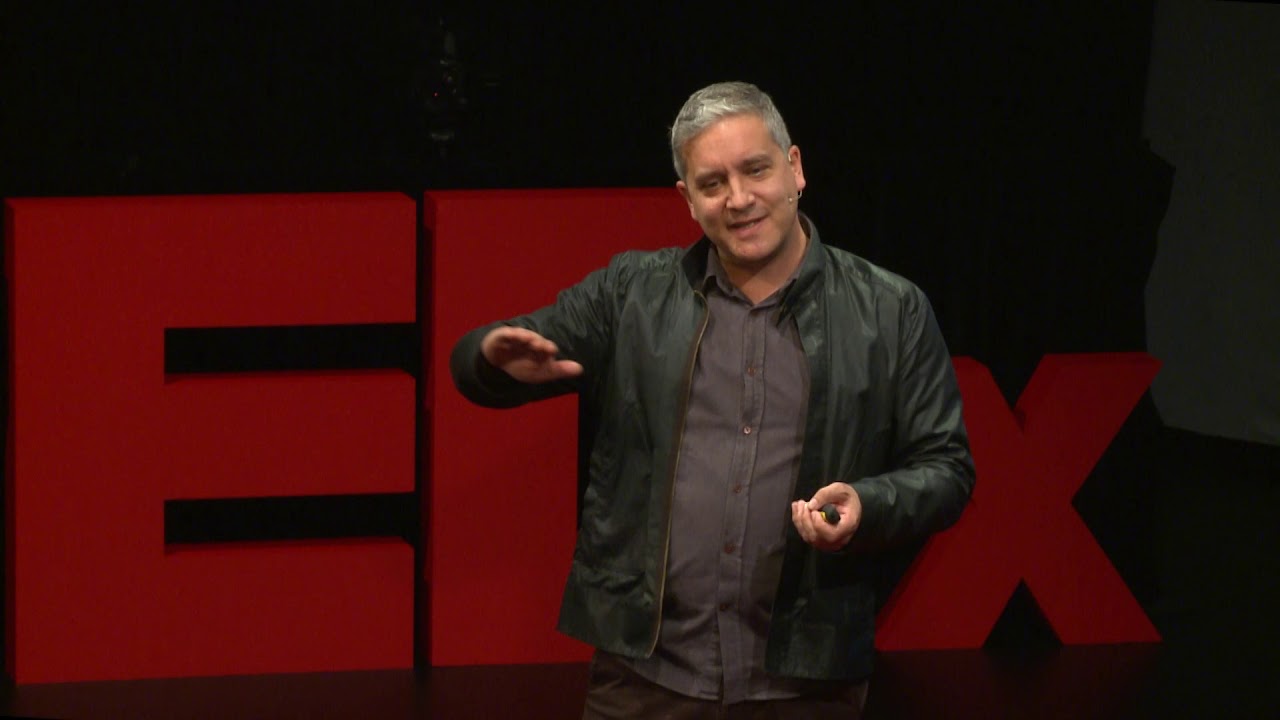BUDGET REACTION — MGA Thermal CEO, Mark Croudace had good things to say about how the Future Made in Australia program and the Australian Renewable Energy Agency’s (ARENA) Solar Sunshot program would dovetail successfully.
He said the Federal Budget “proves that, at a government level, Australia is getting more serious about looking to green energy in an effort to diversify from finite carbon based energy resources like gas and coal”.
“The Future Made in Australia policy, in particular, the $835 million Solar Sunshot funding commitment for solar panel production is a positive step, and there is ample opportunity to expand support further,” Mr Croudace said. 
“While additional solar capacity is certainly needed, we face a bigger challenge on the horizon as supply and demand reach a point where power becomes worthless unless it’s stored and time-shifted effectively.
“Solar energy, in particular, has a limited impact during evening hours when demand peaks. This is where the government needs to intervene to ensure the power system can store and redistribute energy for longer durations than lithium-ion battery arrays can, to keep the grid running.
“Australia’s energy transition is an evolutionary journey, and as the Treasurer (Jim Chalmers) said, it is the biggest transformation in the global economy since the Industrial Revolution,” Mr Croudace said.
“To date, focusing on front-of-meter solutions like solar and wind has been an appropriate starting point. However, the emerging signal that we’re beginning to experience excess power generation during the middle of the day is an important one. It doesn’t mean we’ve overemphasised front-of-meter solutions, but rather that the time has come to diversify and change the mix.
“We now need to complement our existing renewable generation with behind-the-meter energy storage solutions to help smooth out the imbalances and problems that are starting to arise in our grid system.
“While Australia has made commendable strides in renewable energy investments, we urge the government to place greater emphasis on supporting energy storage solutions across the residential, commercial, and industrial sectors. It will allow us to capture excess generation during periods of oversupply and deploy that stored energy when demand peaks.
“A holistic approach that balances utility-scale renewables with distributed energy storage is vital for Australia to effectively manage the evolving supply-demand dynamics of a clean energy future.”
Australia’s future gas strategy
Mr Croudace also had strong opinions about Australia’s gas strategy. 
“While the Labor Government views gas as a critical transition fuel, we need to look beyond stopgap measures and towards future-focused solutions to achieve our energy transition goals,” he said.
“Steam power for manufacturing continues to underpin nearly every major industrial process, constituting 23 percent of Australia’s total energy demand. However, factories currently burn natural gas continuously to generate steam, unable to meet round-the-clock demands with intermittent renewable sources alone.
“Innovative thermal energy storage technologies offer a viable solution, generating 24/7 clean industrial steam without disrupting existing operations. They provide a reliable energy storage buffer that industries can draw upon just like traditional gas reserves, maintaining consistent steam output.
“By backing such technologies aligned with harder-to-abate sectors, the government can drive decarbonisation while safeguarding business performance,” Mr Croudace said.
“The key is supporting solutions that seamlessly integrate into industrial processes, allowing organisations to embrace decarbonisation targets without compromising operations or economics. Technologies that offer reliable thermal energy storage with uninterrupted steam supply validate their alignment with Australia’s energy transition roadmap.
“Supporting the development and commercialisation of these technologies through policies, incentives and funding will enable a smooth transition for heavy industries towards sustainable energy sources while maintaining productivity and competitiveness,” Mr Croudace said.
www.mgathermal.com
Bills must not derail energy transition
Jack Curtis, co-founder of Neara, said while the Budget’s bill relief scheme would provide relief to Australian families and small businesses now, long-term solutions must be built in to the clean energy transition.
“The Albanese government’s $3.5 billion energy bill relief scheme will alleviate pressure on households and small business owners across Australia struggling to manage rising electricity prices,” he said. “Yet despite the short-term financial support, concerns are rising around the growing cost of the energy transition. 
“The clean energy transition is crucial to Australia’s future. But years of rising energy costs and reduced reliability as we transition from fossil generation to renewables are becoming harder to justify for many.
“The $300 energy bill relief package for home owners is a great initiative, but it’s not enough. The cost of the clean energy transition could easily blow out within the next six years and continue to increase financial pressure on consumers.
“Equal focus and investment must be applied to the underlying drivers of rising energy costs, particularly those related to the energy transition, and what can be done differently to mitigate them. To offset costs and stabilise energy prices, the government must source the most efficient, cost-effective pathway to 82% clean energy by 2030.
“This means embracing a holistic strategy encompassing all generation and network capacity sources whilst leveraging new technology that can optimise both,” Mr Curtis said.
“Put simply, more money needs to go further. Australia doesn’t have the same depth of funds as our overseas counterparts, specifically compared with the United States Inflation Reduction Act. Federal and state governments need to work closely on the strategic deployment of funds by stress-testing each proposed pillar of the energy transition and its potential cost before rolling out the initiative.
“The renewable energy infrastructure toolkit we’ve been relying on is essential, but it’s expensive, time-extensive, and continues to face increasing headwinds. Australia has alternative solutions to stress-test costs and bring renewable energy online faster.
“We must actively explore these alternative opportunities or risk exacerbating the current state of play — increased energy bills during a cost-of-living crisis and a delayed energy transition effort,” Mr Curtis said.
“Holistic generation and network modelling offer Federal and State Governments the chance to evolve beyond project-specific initiatives. By sourcing optimal paths to unlocking grid capacity and connecting renewable assets through a precise lens, we can optimise costs and save time.
“The energy industry is still plagued by significant data opacity constraints, where critical stakeholders from governments to networks, developers, and consumers cannot access all necessary information to make the best decisions around where and how renewable generation can be introduced to the energy mix most efficiently.”
Thumbs up for Solar Sunshot investment
Mr Curtis was cautiously optimistic about the Federal Government’s Sunshot Solar and Battery Breakthrough announcements.
“Scaling Australia’s solar manufacturing industry to any meaningful size will likely take two to three years to achieve at a minimum,” Mr Curtis said. “While the government’s $835 million Solar SunShot program and $523 million Battery Breakthrough Initiative are good ideas from a long-term energy security perspective, the likelihood of both making substantive contributions to the 82% renewable energy target by 2030 are low.
“The future of Australia’s energy sector needs a coordinated approach to cost-efficiently and time-effectively generate and connect renewable energy. To their collective credit, Federal and State Governments have already implemented numerous strong policies – including the Capacity Investment Scheme – which will support the necessary generation required.
“However, Australia still has two major constraints preventing the energy transition: permitting/planning delays and network availability and accessibility. With these two critical challenges to the energy transition remaining largely unresolved, we cannot afford to over-index on initiatives like the Sunshot Solar program,” Mr Curtis said.
“The government can continue encouraging and supporting all the generation projects required, but if this extra generation cannot be connected to the grid, the energy transition will run into a proverbial brick wall. Transmission is one critical avenue to address network access issues, but it’s expensive and increasingly delayed. Relying on the necessary amount of transmission projects to be built on time and at cost is no longer realistic.
“The government must assess all parts of the equation and provide broader funding support to address network constraints,” he said. “Embracing behind-the-meter solutions and optimising the existing network is essential to reaching net-zero targets and realising Australia’s role in the global net zero economy.
“While greater investments in solar, battery technology and transmission, can play a role in Australia’s long-term energy security, we must focus on strategies that solve our short-term energy transition and security goals. A coordinated, technology-driven approach should not be a supporting component, but must represent the next phase of the clean energy strategy.”
www.neara.com
Hiringa Energy boss says now is the time to innovate
Andrew Clennett, CEO and co-founder of Hiringa Energy said the Future Made in Australia Act was “a generational opportunity” to even the playing field with fossil fuels, crowd-in investment and accelerate timelines for low-carbon product availability “which will be essential to enabling businesses to make responsible change”.
“The Federal Government has demonstrated its understanding of the important role hydrogen has to play in the energy transition and the scale of investment required, and we welcome the budget’s $19.7 billion allocation to accelerate investment in priority industries, including $8 billion to support production of renewable hydrogen,” Mr Clennett said. 
“Government support is essential and welcome. There are a range of decarbonisation pathways, and government intervention should facilitate the development of a broad toolkit of viable decarbonisation technologies allowing for the breadth of our industries and use-cases.
“We believe this budget has set the framework for achieving such a balance, including through the Hydrogen Production Tax Incentive and CfD mechanisms via additional Hydrogen Headstart funding,” Mr Clennett said.
“Having experience of developing commercial hydrogen infrastructure we are confident that these mechanisms will help catalyse the nascent industry. We encourage ongoing policy to allow the market to indicate where green hydrogen makes the most sense, which will ensure a broad range of projects deliver low-emission products to end-users in the format they need, at the point they need it, and at a scale that is consistent with actual demand.”
Support for current transition policies
Mr Clennett said the Federal Government’s support for a range of initiatives was vital for clean energy transition success.
“Hiringa Energy strongly commend Australia’s Federal Government for continued support of ongoing and in-development initiatives which will serve as a framework underpinning national decarbonisation, including through adoption of low-carbon products,” he said.
“The Safeguard Mechanism, GO and REGO schemes, and introduction of mandatory climate-related financial disclosure are all great examples of policy which will deliver integrity, assurance, accountability and for some, a financial driver to accurately capture and report environmental impact, and transition to low-emissions products and processes.
“Hiringa views Australia as an extremely promising opportunity for green hydrogen industry development, however low-carbon fuels and feedstocks do not experience an even playing field compared to fossil fuel-derived incumbents that have enjoyed over 150 years to create economies of scale. That being said, technologies such as green hydrogen have incredible potential to accelerate commercialisation and create scale economies and drive costs down in a fraction of that time, but there is a need for near term support.”
www.hiringaenergy.com
Clean energy sector’s skills shortages warning
HiBob vice president for Asia-Pacific and Japan, Damien Andreasen warned about the Federal Budget’s oversights regarding skill shsortages in the sector.
“One of the glaring omissions from the budget was any kind of measure that directly addresses Australia’s skills shortages beyond the construction sector,” he said. 
“Employers in Australia across several industries have struggled over the past few years to attract people with the right skills — especially in tech, AI, science and engineering — first during the pandemic when our borders were closed and then again last year during severe economic headwinds.
“Now would’ve been the perfect time to announce further plans to fix this systemic problem through a mix of education and training programs for home-grown talent – especially for the rising unemployed – and further short-term visa incentives to attract high-skilled workers to Australia,” Mr Andreasen said.
“Against this economic backdrop, a recent HiBob study found that pay is the number-one factor that would encourage young people working in tech to switch jobs.
“And so, for the immediate short term at least, employers who have invested so much in their culture, diversity, flexibility and employee wellbeing over the past few years — essentials for modern business — will have to compete mainly on good old-fashioned compensation to recruit the most sought-after talent. That makes workforce planning for each employer even more important than usual.”
www.hibob.com
AI could come to the rescue in healthcare sector
Australia is in the melee of a healthcare crisis according to Harrison.ai co-founder and CEO, Aengus Tran.
“With spiralling costs, an ageing population and workforce shortages, Australia is in the throes of a healthcare crisis,” Dr Tran said. “A crisis that technology – especially AI-enabled solutions – could help overcome. 
“The Health Research for a Future Made in Australia package announced in the budget is an encouraging step in creating better standards of care for all Australians. This is further supported by the National Digital Health strategy launched earlier this year, which specifically supports the power of technology in healthcare.
“However, Australia still remains far behind many other nations when it comes to investment in AI research and adoption for healthcare. A blindspot that limits us from reaching the full potential of technology in improving patient outcomes.
“As an Australian-grown health tech company, we would love to see policies that aid the adoption of medical AI into clinical practice,” Dr Tran said. “It’s essential that these tools are scientifically validated not only to meet regulatory requirements, but also the needs of those who use them.
“Dedicated funding for AI research would enable healthcare professionals to gather evidence of its role in improving our healthcare system, ultimately helping to inform future policies and funding decisions.”
“We also need to focus on creating pathways for reimbursement for digital health technology like AI, including short-term solutions like funding that can be used to kick-start adoption and measure impact.
“The UK, for example, has exclusive funding to speed up the deployment of highly promising AI imaging and decision support tools so patients can get a quicker diagnosis,” Dr Tran said.
“In Australia, similar funding models are needed to support wider advancements in technology and medical AI in healthcare practices nationally.”
www.harrison.ai
ends


 How to resolve AdBlock issue?
How to resolve AdBlock issue? 









